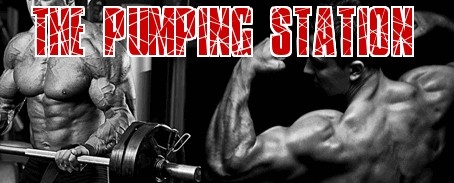Is Spirulina Good for Bodybuilding?
Background
Spirulina is a supplement made from the blue-green algae. It's a vegetable plankton whose cells form the shape of a coiled spring, thus the name Spirulina, which means little spiral. I bet you heard and read claims like "Spirulina is the most nutrient rich superfood available" or "Spirulina produces 200 times the protein per acre of beef cattle and ten times that of Soybeans". Well, the story goes like this.
In the seventies, governments were troubled by the famine in some parts of the world. Scientist assumed that the problem was due to lack of protein in the diet. The research began and two cheap protein sources were brought out to the sunlight. The two sources were actually from algae; the first was nori (Porphyratenera) and the second Spirulina. The research project was terminated though, because the algaes contained way too much nucleic acids (acids that constitute our gene pool). Excess of nucleic acids contributes to joint trouble and gout.The Vitamin B-12 issue
Spirulina is also marketed as a great resource of vitamin B-12. B-12 is essential to cell metabolism, especially for vegetarians, who has no reliable vegetable source for this vitamin. Doctors have recommended algae tablets for vegetarians. The problem however is that when the scientists analyzed the algaes they used a method that measure bacteria growth. If there were no bacterial growth, the food lacked vitamin B-12. However, with more modern techniques scientists has discovered that the bacteria grows just as well on chemicals that has some resemblance to vitamin B-12. But these chemicals have no effect on our bodies.
It seems unjustified to advocate algae and other plant foods as a safe source of vitamin B-12 because its bioavailability is questionable.The Protein issue
As mentioned in the beginning of this article Spirulina is also marketed as a great source of high quality protein. The characteristic constituents of Spirulina platensis and Spirulina maxima, in addition to the high protein content (70 p. 100 of dry matter), is the huge amount of nucleic acids that account for about 4 p. 100. (Recent research has also found the presence of toxic metals, biogenic toxins and organic chemicals.) 70 g out of 100 sure is a lot of protein but the biological score is far from perfect. It might therefore be a good idea to complement it with other protein sources to bring the protein score up to desired levels.
In conclusion
For athletes Spirulina should be considered as a protein supplement, but it is far from the best you can find. I wouldn't waste my money on Spirulina. Go for pure whey or, even better, a mixture of soy, whey and casein protein!
Supplement Score: 2 of 5.
Click Here to Sign Up for Your Free Bodybuilding Magazine Subscription
